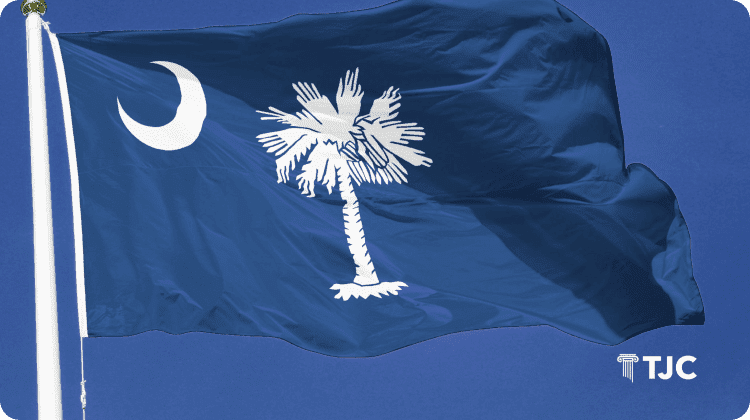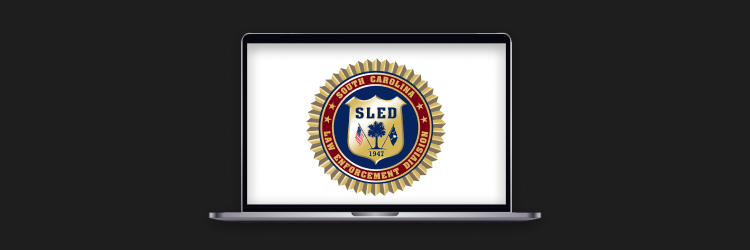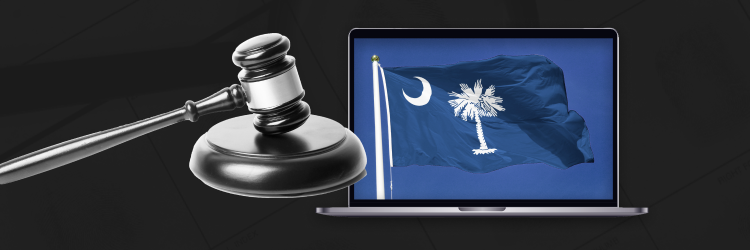A background check verifies an individual’s personal and professional details. This comprehensive process is particularly useful for employers and landlords. Benefits include safety, confirming credentials, and maintaining compliance with laws.
We’ll discuss how it works in South Carolina. You’ll know what to expect, applicable laws, what information will show up, and where to start the process.
Need a Background Check?
What Is a South Carolina Background Check?
The report obtained from different types of background checks is a comprehensive overview. Interested parties initiate this thorough process to find and confirm personal and professional details of individuals within the state.
Employers, landlords, and organizations use these reviews to make well-informed decisions about who they hire, rent to, or trust with responsibilities.
How Do I Get a State Background Check in South Carolina?
To check a person’s background in South Carolina and other states, follow these step-by-step instructions:
- Determine the type of check needed: Decide if you need a standard criminal history check or a more detailed check that includes other records.
- Visit the South Carolina Law Enforcement Division (SLED) website: The division offers an online service to request criminal background checks.
- Complete the request form: Provide all required information, such as full name, date of birth, and Social Security number. Ensure that all information is accurate to avoid delays.
- Pay the fee: There is a payment required for processing background checks. You can pay online or by mail at the time of your application.
- Submit your application: After filling out the form and making a payment, submit your application for processing.
- Receive your results: The processing time can vary. You will receive your report via email or mail after completion.
What Shows Up on a South Carolina Background Check?
Here’s a breakdown of the types of information typically included:
Criminal History
Criminal background checks provide a snapshot of an individual’s interactions with law enforcement and the judicial system. The criminal activity information reported includes:
- Case numbers
- Arrest dates
- Charge(s)
- Charge severity
- Dispositions
- Disposition date
- Sentences
- Sex offender registry status (if applicable)
Employment Verification
Most employers will be curious about a candidate’s previous employment during the hiring process. Verification of employment history is essential for validating an applicant’s professional experiences. The check includes:
- Employer names
- Dates of employment
- Position titles
Education Verification
Certain positions require confirmation of an individual’s educational achievements. Oftentimes, the credentials are prerequisites for the job. Education background check includes:
- Institutions attended
- Dates of attendance
- Degrees or certificates
- Any training
What Are the Background Check Laws and Regulations in South Carolina?
Below are the key federal and state laws that guide how to conduct the background review in South Carolina.
Fair Credit Reporting Act (FCRA)
The FCRA, a federal law, governs how institutions use consumer information in background checks. Various restrictions limit reporting on outdated or non-conviction records. Employer compliance with informed consent and adverse action procedures is necessary to avoid penalties.
Title VII of the Civil Rights Act of 1964
Title VII prohibits discrimination in employment decisions. Before the first interview, a criminal background cannot influence a hiring decision. The Civil Rights Act says employers must make individual assessments based on experience and qualifications.
Protection for Expunged Records
Per S.C. Code Ann. § 17-22-960, South Carolina employers are not authorized to use expunged criminal records when making employment decisions. This state law supports giving individuals a fair chance at employment after they have taken legal steps to clear their records.
South Carolina Code on Consumer Reporting
According to the S.C. Code Ann. § 37-20-170, a consumer reporting agency must take several steps after confirming the accuracy of disputed information on a background check report.
It’s crucial for them to provide the applicant with a detailed notice that explains the basis of the decision. There also has to be supporting evidence of its accuracy.
Requirements for Child Welfare Agencies
Under SC Code Ann. § 63-11-70, child welfare agencies cannot consider pardoned criminal offenses. They can, and most employers will, investigate the circumstances surrounding the pardoned offense when making hiring decisions.
Local South Carolina Fair Hiring Laws
The South Carolina Human Affairs Law (SCHAL) outlines protected characteristics exempt from discrimination. The state law says employers with 15 or more employees must avoid discrimination based on:
- Race
- Color
- Religion
- Sex (including pregnancy and gender identity)
- National origin
- Age (for individuals 40 and older)
- Disability
SCHAL provides a fair playing field for all job applicants and existing employees during the hiring process. The law also includes promotions, terminations, and other employment-related decisions.
The Fair Labor Standards Act (FLSA) complements these protections by requiring fair pay practices. It includes minimum wage, overtime pay, and proper classification of employees as exempt or non-exempt based on their job duties and salary.
South Carolina County Resources
These resources are essential for research, historical data verification, and obtaining vital files for personal or legal use.
- Public Information Resources: The South Carolina Dept. of Education provides accurate and timely information about the state’s public school system to ensure transparency and public awareness.
- South Carolina Department of Archives and History: The SC Department of Archives and History houses original documents. They have records of estates and wills, essential for genealogical research and historical studies.
- FOIA and Public Records: The South Carolina Freedom of Information Act (FOIA) ensures comprehensive access to public records, including books, papers, maps, photographs, and recordings.
- Horry County Public Information: Horry County’s Public Information Department works closely with local media outlets to provide accurate and timely updates on county matters.
- Probate Records: The state probate records, including wills, records of estates, and guardianships, are accessible through county probate courts. These files are essential for legal proceedings and genealogical research.
How Far Back Does a Background Check Go in South Carolina?
The scope of a check typically extends back seven years. The Fair Credit Reporting Act primarily guides this limitation. It sets the national standard for consumer reporting agencies.
How Long Does a Background Check Take in South Carolina?
Typically, these checks can take a few days to several weeks. Several factors influence the turnaround time.
- Comprehensiveness of the criminal history check
- Responsiveness of past employers during employment verification
- Speed of educational institutions returning academic records
How Much Does a Background Check in South Carolina Cost?
The standard rate for a background check through SLED is typically $25 per report. If a fingerprint-based check is necessary, the cost is $37.25. The state offers a reduced rate of $8.00 for charitable organizations.
Where to Get A Background Check in South Carolina?
It is advisable to use the services provided by the South Carolina Law Enforcement Division for criminal history screenings related to employment, licensing or tenancy. You can rest assured that this agency will follow state and federal laws related to background checks.
For more informal checks on friends or family, various online background check services, such as the options listed below, can provide useful information. Unfortunately, you should not use these sites for official purposes.
Best Background Check Services
Here are some options with their pros and cons:
- TruthFinder – Best for comprehensive searches
- Instant Checkmate – Best for social media
- BeenVerified – Best for mobile-friendly
TruthFinder is a popular service that offers detailed reports on individuals. Founded in 2015, it provides comprehensive data, including criminal activity, contact information, and social media profiles. As of 2024, TruthFinder has amassed millions of users, highlighting its widespread use. The platform prides itself on accuracy, utilizing billions of public records to compile its reports. Note: TruthFinder is only intended for personal background checks on family and friends. For official services, consult government agencies. Star Rating / 5.0 Instant Checkmate is another leading service in the background check industry, established in 2010. It specializes in providing detailed insights into social media profiles, which is particularly useful for personal background checks. As of mid-2024, the service boasts a user base in the millions, underlining its popularity. Note: Instant Checkmate is only intended for personal background checks on family and friends. For official services, consult government agencies. Star Rating / 5.0 BeenVerified, founded in 2007, features a user-friendly mobile app that makes background reviews accessible on-the-go. As of 2024, millions of users trust the service to find personal information about family and friends. Note: BeenVerified is only intended for personal background checks on family and friends. For official services, consult government agencies. Star Rating / 5.0
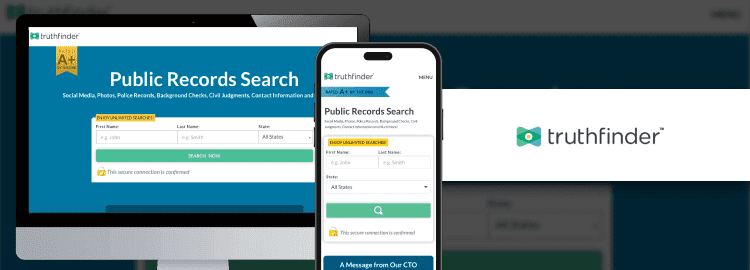
Pros
Detailed and thorough reports
Has filters and advanced options
Regular updates to data
Cons
Requires a subscription for full access
Can be overwhelming with information
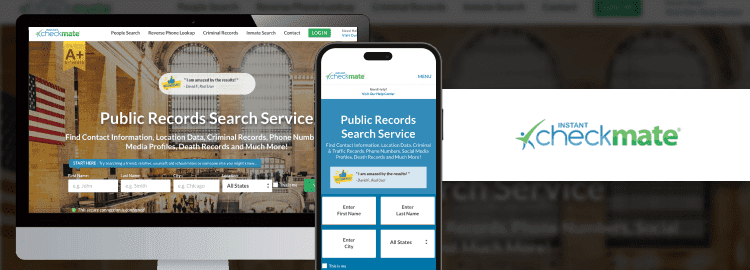
Pros
Focus on social media insights
Quick search results
User-friendly interface
Cons
Subscription required for detailed reports
Limited free information
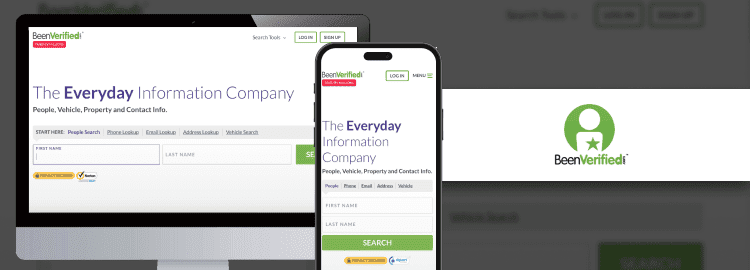
Pros
User-friendly mobile app
Comprehensive data range
Clear and concise reports
Cons
Subscription needed for full features
Some data may be outdated
South Carolina State Background Check Recap
Understanding laws in South Carolina is important for anyone looking to make informed decisions about employment, housing, or personal safety.
A background check in South Carolina provides comprehensive information that can help maintain safe environments and verify the accuracy of personal and professional details.
These checks ensure that individuals are trustworthy and qualified. Factors like those are especially important in sensitive sectors like healthcare and education. Always prioritize using appropriate services for background checks to stay compliant with legal requirements and ensure fair practices.
Disclaimer: Some background check sites are just for personal use and conducting basic people searches. Others, such as those used by potential employers, must comply with the Fair Credit Reporting Act (FCRA). This law limits the types of information you can find on other people. If you’re an employer or landlord using a background check for professional purposes, be sure to choose a site that’s FCRA compliant. Using a people search site that doesn’t comply with the FCRA to screen potential tenants, domestic workers or employees is illegal.
The information available on our website may not be 100% accurate, complete, or up to date, so do not use it as a substitute for your own due diligence, especially if you have concerns about a person’s criminal history. The services we mention do not make any representation or warranty about the accuracy of the information available through our website or about the character or integrity of the person about whom you inquire. For more information, please review each service’s Terms of Use.


